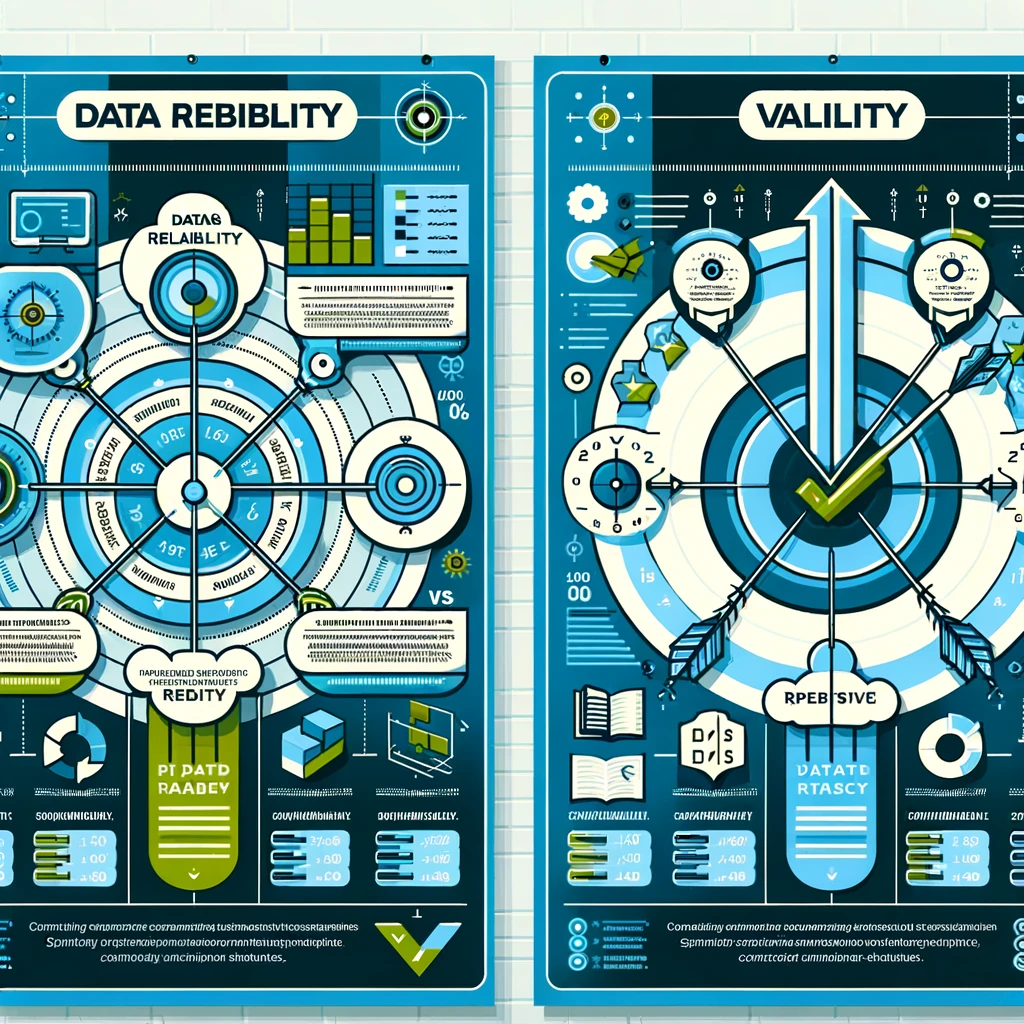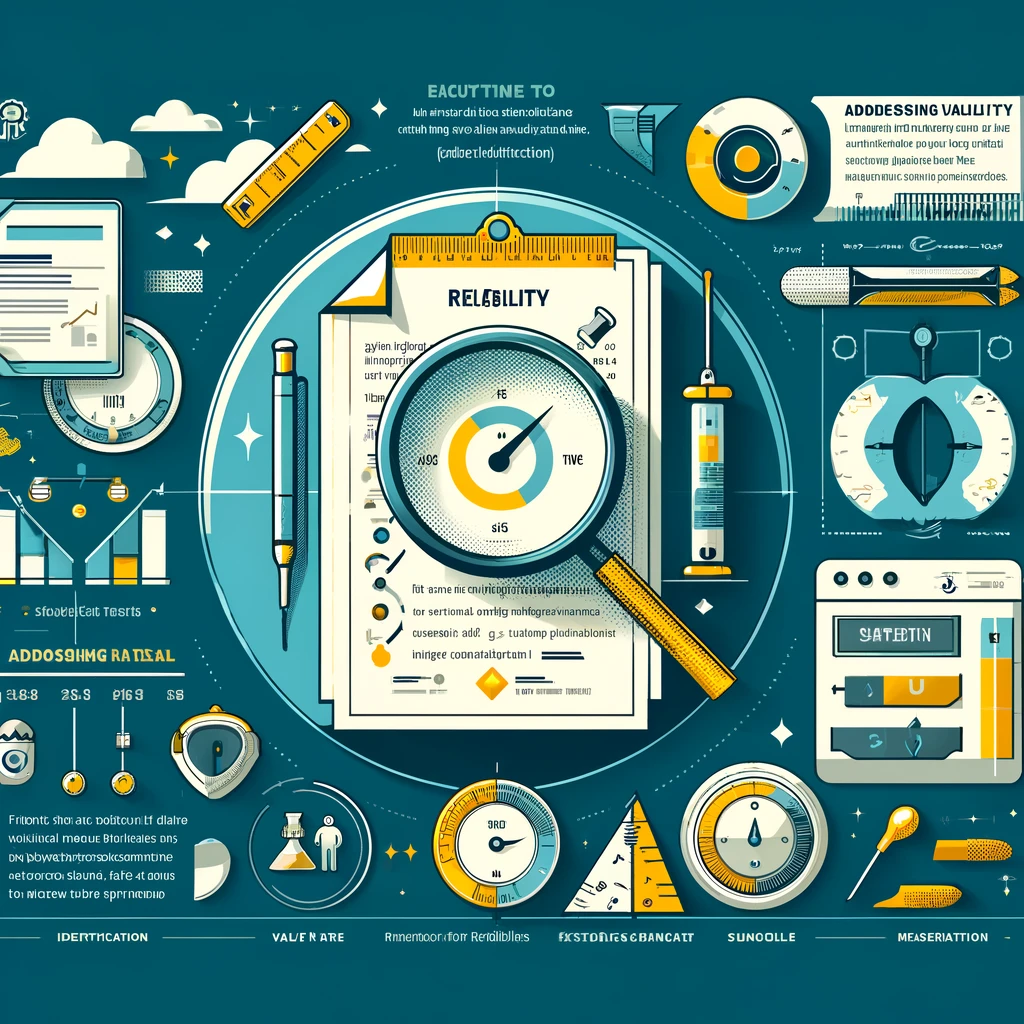In the realm of data analysis, reliability and validity are crucial concepts that ensure the accuracy and consistency of research findings. Reliability refers to the consistency of a measure, while validity pertains to the accuracy of a measure. This article delves into these concepts, highlighting their differences and discussing methods to identify and address them.
Data Reliability vs. Validity

Reliability is about the consistency of a set of measurements or measuring instrument. Think of it as the precision of a scale that gives you the same weight every time you step on it, regardless of whether the weight it shows is correct or not.
Validity, on the other hand, is about the truthfulness of a measure. It’s like using a map for navigation; the map is valid if it accurately reflects the geography it represents.
Differences Between Data Reliability vs. Validity
- Consistency vs. Accuracy: Reliability is about the repeatability of results, while validity is about the accuracy of the measurement.
- Measurement Error: Reliability is concerned with the amount of random error in the measurement process, whereas validity is concerned with systematic error, or how well the measurement reflects the actual concept.
Identifying and Addressing Reliability and Validity

- Test-Retest Method: For reliability, use the test-retest method where the same test is administered to the same group at two different points in time.
- Face Validity Assessment: For validity, assess face validity by determining if the test appears to measure what it’s supposed to measure.
Enhancing Data Integrity
Data Collection Protocols
Establish strict data collection protocols to minimize variability and ensure each data point is gathered consistently.
Calibration of Instruments
Regular calibration of measuring instruments can maintain the reliability of data over time.
Ensuring Accurate Data Interpretation
Cross-Validation Techniques
Use cross-validation techniques to verify the validity of the data by comparing it with known standards or additional measures.
Statistical Consistency Checks
Implement statistical consistency checks to detect anomalies that might indicate issues with reliability or validity.
Data Reliability and Validity in Research
Importance in Research Outcomes
The reliability and validity of data directly impact the credibility of research outcomes and the conclusions drawn from the data.
“The goal of research is to discover the truths of the world, and this is impossible without reliable and valid data.”
– John Doe, Data Scientist
Ethical Considerations
Maintaining high standards of reliability and validity is not only a methodological concern but also an ethical one, ensuring that research does not mislead or misinform.
| Aspect | Reliability | Validity |
|---|---|---|
| Focus | Consistency | Accuracy |
| Error Type | Random | Systematic |
| Method | Test-Retest | Face Validity |
Methods to Enhance Reliability and Validity
| Method | Description |
|---|---|
| Calibration | Regular adjustment of instruments to maintain accuracy |
| Cross-Validation | Comparing data against established standards |
“In God we trust; all others must bring data.”
– W. Edwards Deming
FAQs
A broken clock shows the same time all day, making it reliable but not valid.
No, for a measure to be valid, it must first be reliable.
Poor reliability can lead to inconsistent results, undermining the research’s credibility.
Validity ensures that the data accurately represents the concept being measured.
NLP can help in processing and analyzing textual data, ensuring that the interpretations are accurate and valid.
Conclusion
Understanding and differentiating between data reliability and validity is paramount for any researcher or analyst. By identifying and addressing the differences, one can ensure that the data collected is both consistent and accurate, leading to trustworthy and ethically sound research outcomes.
Read Also: How to Establish an Online Language Tutoring Business in Australia


































